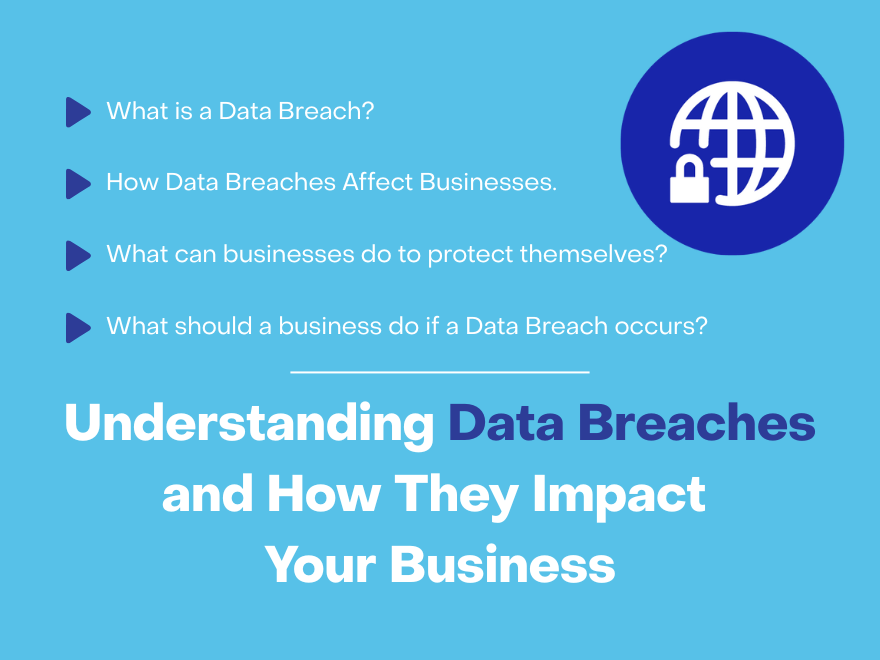
Understanding Data Breaches and How They Impact Your Business
Data breaches are a frequent topic in the news, affecting major corporations and government agencies regularly. For example, M&S and CO-OP. But what exactly is a data breach, how are they hitting big companies, and why should businesses be concerned?
A data breach occurs when sensitive, protected or confidential information is accessed or stolen by unauthorised individuals. For businesses, this can include customer data, intellectual property, employee records, and proprietary company information. The consequences of a breach can be severe, resulting in financial loss, legal action, regulatory fines, and lasting damage to the organisation’s reputation.
How Data Breaches Affect Businesses
The fallout from a data breach can be wide-ranging:
Financial Losses
Businesses may face direct financial costs such as fraud, legal fees, regulatory penalties, and the cost of investigating and mitigating the breach. Additionally, there can be indirect losses resulting from operational downtime and a loss of customer trust.
Reputational Damage
A breach can severely damage a company’s brand and erode customer loyalty. Once trust is broken, it can take years to rebuild — and in some cases, businesses may never fully recover.
Legal and Regulatory Consequences
Strict data protection laws govern many industries. A breach may trigger investigations by data protection authorities and could result in significant fines or legal action if the organisation is found to have been negligent.
Operational Disruption
Businesses may need to divert resources to address the breach, which can impact day-to-day operations. Critical systems may need to be shut down temporarily to contain the damage.
What can businesses do to protect themselves?
While no system is 100% immune, there are steps businesses can take to reduce the risk of a data breach:
Enforce strong password policies
Ensure all employees use secure, unique passwords. Consider implementing password managers across the organisation.
Enable Multi-Factor Authentication
Add an extra layer of protection by requiring users to verify their identity through a second method, such as a phone app or hardware token.
Implement Robust Cybersecurity Measures
Use up-to-date firewalls, antivirus software, and intrusion detection systems. Regularly patch and update all systems and software to ensure optimal performance and security.
Educate Employees
Conduct regular training to help employees recognise phishing attempts and practise good cyber hygiene. Many breaches occur due to human error.
Protect Physical Documents
Shred sensitive documents before disposal. Ensure physical access to data is restricted to authorised personnel only.
What should a Business Do If a Data Breach Occurs?
If your business suffers a breach, act swiftly and methodically:
- Assess the Situation
- Notify the Appropriate Parties
- Contain and Mitigate the Breach
- Communicate Transparently
- Monitor for Ongoing Risks
Data breaches pose a serious threat to businesses of all sizes. While it’s impossible to eliminate the risk, taking proactive measures can significantly reduce your vulnerability and prepare your business to respond effectively if a breach does occur.
